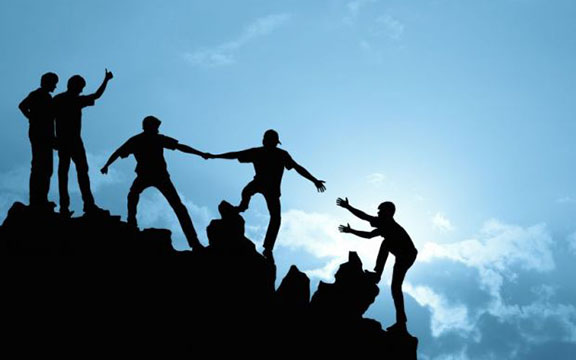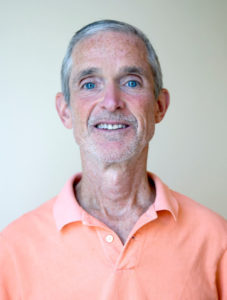 When Spring arrives, along with longer, warmer days and the flowering of plant life, it holds for us the potential for personal growth and awakening creative energies. In some traditions, this season is one of self-reflection, making sacrifices for a higher purpose and purifying oneself in preparation for new growth. I believe this is what we are called to do at this moment to lay a foundation for a healthier world. We have the opportunity to see ourselves more than ever as an interconnected global family, and turn the sufferings and losses caused by COVID-19 into compost for growing new forms of collaboration to solve the crises that threaten us all.
When Spring arrives, along with longer, warmer days and the flowering of plant life, it holds for us the potential for personal growth and awakening creative energies. In some traditions, this season is one of self-reflection, making sacrifices for a higher purpose and purifying oneself in preparation for new growth. I believe this is what we are called to do at this moment to lay a foundation for a healthier world. We have the opportunity to see ourselves more than ever as an interconnected global family, and turn the sufferings and losses caused by COVID-19 into compost for growing new forms of collaboration to solve the crises that threaten us all.
At the most basic level, we need to continue to sacrifice some of our personal freedoms to protect each other. The word sacrifice may conjure up images of killing animals on an altar or dogmatic religious practices. Understood in a spiritual context, it is the willingness to renounce some personal desires in order to serve a higher purpose. It means dedicating our time and energy in ways that serve the greater good instead of individual preferences.
In a way, all of our spiritual practices are a form of sacrifice—using our energies to heal the body, purify the heart, and quiet the mind in order to awaken to the spiritual ground of being we share with all of life. A clear example of this is fasting.
Fasting is practiced this time of year in the Christian tradition and later in Spring in the Islamic holy month of Ramadan. It involves limiting what we eat and drink in mindful ways that allow the body to cleanse itself. Fasting also enables us to reflect on how dependent we are on those forms of pleasure, and it aligns our consumption with our intention to experience ever more fully the Divine Presence within. It develops willpower and brings a fiery clarity to the mind that deepens meditation.
Sacrifice can take the form of a small self-discipline, like letting go of a plan to watch a movie one evening in order to get enough rest for the next morning’s meditation. It is not meant to be a repression of our impulses or a denial of genuine needs. It becomes easy to say no to many things when we have a greater yes, a higher purpose in our hearts.
During the pandemic, we’ve had a good look at the dysfunction of our worldwide community. Our inability to truly work together has come at a high price—2.5 million deaths—many of which could have been prevented if we weren’t so busy fighting with each other. Humanity is an ocean comprised of individual drops. At least as individuals, we can make small sacrifices to build bridges between ourselves and others instead of staying entrenched in our views. We can look deeply to see the unexpressed needs behind others’ disruptive behavior and find mindful ways to speak our truth without condemning others.
When things open up again, it will take a real effort and commitment not to slide back into the old habits and divisions we participated in before. Many people tired of isolation may become frustrated and careless or fall into depression. Now is the time we need the conviction to stand strong and clear in the face of this lingering adversity we all face, to sacrifice some comforts in order to adhere to our values when others may not. Our eyes have been opened—let’s not close them again.
About the Author:
 Swami Ramananda is the president of the Integral Yoga Institute of San Francisco and a greatly respected master teacher in the Integral Yoga tradition, who has been practicing Yoga for more than 35 years. He offers practical methods for integrating the timeless teachings and practices of Yoga into daily life. He leads beginner, intermediate, and advanced-level Yoga Teacher Training programs in San Francisco and a variety of programs in many locations in the United States, Europe, and South America. Swami Ramananda trains Yoga teachers to carry Yoga into corporate, hospital, and medical settings and has taught mind/body wellness programs in many places. He is a founding board member of the Yoga Alliance, a national registry that supports and promotes Yoga teachers as professionals.
Swami Ramananda is the president of the Integral Yoga Institute of San Francisco and a greatly respected master teacher in the Integral Yoga tradition, who has been practicing Yoga for more than 35 years. He offers practical methods for integrating the timeless teachings and practices of Yoga into daily life. He leads beginner, intermediate, and advanced-level Yoga Teacher Training programs in San Francisco and a variety of programs in many locations in the United States, Europe, and South America. Swami Ramananda trains Yoga teachers to carry Yoga into corporate, hospital, and medical settings and has taught mind/body wellness programs in many places. He is a founding board member of the Yoga Alliance, a national registry that supports and promotes Yoga teachers as professionals.

